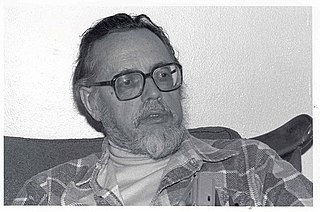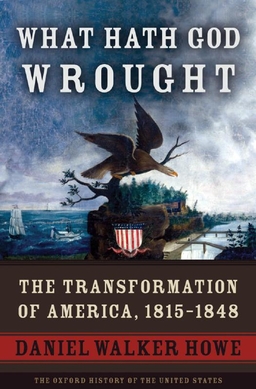 First edition (publ. George Braziller) | |
| Author | Gabriel Vahanian |
|---|---|
| Published | 1961 |
| ISBN | 9780807603604 |
The Death of God is a 1961 book by Gabriel Vahanian, a part of the discussion of death of God theology during the period. [1]
 First edition (publ. George Braziller) | |
| Author | Gabriel Vahanian |
|---|---|
| Published | 1961 |
| ISBN | 9780807603604 |
The Death of God is a 1961 book by Gabriel Vahanian, a part of the discussion of death of God theology during the period. [1]
In the book, Vahanian observes that many people in his era regarded the Christian God to be irrelevant to their situation. He describes that Christianity, and particularly theism, was not resonating with people. One explanation given for this is that the Christian God is too transcendent, whereas people in his day were largely focused on the practical worldly goals. [2]
The book describes the process of secularization, namely, how society has steadily removed God from its institutions. Vahanian contends that the apparent religiosity of the 1950s obscures many from recognizing this process. [3]
The book criticized efforts to modernize Christianity, such as Norman Vincent Peale's 1952 best-seller, The Power of Positive Thinking , which Vahanian asserted reduced Christianity to "a tool for success." Instead, Vahanian argued that faith was for coping with suffering, developing the conscience, and confronting doubts about God. [4] The book claimed that Peale and Billy Graham had "domesticated" Christianity and its God. [5]
The book includes a religious critique of existentialism. [3]

Christianity is an Abrahamic monotheistic religion, professing that Jesus was raised from the dead and is the Son of God, whose coming as the Messiah (Christ) was prophesied in the Hebrew Bible and chronicled in the New Testament. It is the world's largest and most widespread religion with over 2.38 billion followers, comprising around 31.2% of the world population. Its adherents, known as Christians, are estimated to make up a majority of the population in 157 countries and territories.
Christianity began as a movement within Second Temple Judaism, but the two religions gradually diverged over the first few centuries of the Christian era. Today, differences of opinion vary between denominations in both religions, but the most important distinction is Christian acceptance and Jewish non-acceptance of Jesus as the Messiah prophesied in the Hebrew Bible and Jewish tradition. Early Christianity distinguished itself by determining that observance of halakha was not necessary for non-Jewish converts to Christianity. Another major difference is the two religions' conceptions of God. Depending on the denomination followed, the Christian God is either believed to consist of three persons of one essence, with the doctrine of the incarnation of the Son in Jesus being of special importance, or like Judaism, believes in and emphasizes the Oneness of God. Judaism, however, rejects the Christian concept of God in human form. While Christianity recognizes the Hebrew Bible as part of its scriptural canon, Judaism does not recognize the Christian New Testament.

Mormonism is the theology and religious tradition of the Latter Day Saint movement of Restorationist Christianity started by Joseph Smith in Western New York in the 1820s and 1830s. As a label, Mormonism has been applied to various aspects of the Latter Day Saint movement, although since 2018 there has been a push from The Church of Jesus Christ of Latter-day Saints to distance itself from this label. One historian, Sydney E. Ahlstrom, wrote in 1982 that, depending on the context, the term Mormonism could refer to "a sect, a mystery cult, a new religion, a church, a people, a nation, or an American subculture; indeed, at different times and places it is all of these."

Christian Science is a set of beliefs and practices which are associated with members of the Church of Christ, Scientist. Adherents are commonly known as Christian Scientists or students of Christian Science, and the church is sometimes informally known as the Christian Science church. It was founded in 1879 in New England by Mary Baker Eddy, who wrote the 1875 book Science and Health with Key to the Scriptures, which outlined the theology of Christian Science. The book was originally called Science and Health; the subtitle with a Key to the Scriptures was added in 1883 and later amended to with Key to the Scriptures.

In Islam, Jesus is believed to be the penultimate prophet and messenger of God and the Messiah sent to guide the Children of Israel with a book called the Injīl.

Norman Vincent Peale was an American Protestant clergyman, and an author best known for popularizing the concept of positive thinking, especially through his best-selling book The Power of Positive Thinking (1952). He served as the pastor of Marble Collegiate Church, New York, from 1932, leading this Reformed Church in America congregation for more than a half century until his retirement in 1984. Alongside his pulpit ministry, he had an extensive career of writing and editing, and radio and television presentations. Despite arguing at times against involvement of clergy in politics, he nevertheless had some controversial affiliations with politically active organizations in the late 1930s, and engaged with national political candidates and their campaigns, having influence on some, including a personal friendship with President Richard Nixon.
Postmodern theology, also known as the continental philosophy of religion, is a philosophical and theological movement that interprets Christian theology in light of postmodernism and various forms of post-Heideggerian thought, including post-structuralism, phenomenology, and deconstruction.

Antony Garrard Newton Flew was an English philosopher. Belonging to the analytic and evidentialist schools of thought, Flew worked on the philosophy of religion. During the course of his career he taught philosophy at the universities of Oxford, Aberdeen, Keele, and Reading in the United Kingdom, and at York University in Toronto, Canada.

John Howard Yoder was an American Mennonite theologian and ethicist best known for his defense of Christian pacifism. His most influential book was The Politics of Jesus, which was first published in 1972. Yoder was a Mennonite and wrote from an Anabaptist perspective. He spent the latter part of his career teaching at the University of Notre Dame.

The Jesus Mysteries: Was the "Original Jesus" a Pagan God? is a 1999 book by British authors Timothy Freke and Peter Gandy, which advances the argument that early Christianity originated as a Greco-Roman mystery cult and that Jesus was invented by early Christians based on an alleged pagan cult of a dying and rising "godman" known as Osiris-Dionysus, whose worship the authors claim was manifested in the cults of Osiris, Dionysus, Attis, and Mithras.
In religion, transcendence is the aspect of existence that is completely independent of the material universe, beyond all known physical laws. This is related to the nature and power of deities as well as other spiritual or supernatural beings and forces. This is contrasted with immanence, where a god is said to be fully present in the physical world and thus accessible to creatures in various ways. In religious experience, transcendence is a state of being that has overcome the limitations of physical existence, and by some definitions, has also become independent of it. This is typically manifested in prayer, rituals, meditation, psychedelics and paranormal visions.
Death of God theology refers to a range of ideas by various theologians and philosophers that try to account for the rise of secularity and abandonment of traditional beliefs in God. They posit that God has either ceased to exist or in some way accounted for such a belief.

Gabriel Vahanian was a French Protestant Christian theologian who was most remembered for his pioneering work in the theology of the "death of God" movement within academic circles in the 1960s, and who taught for 26 years in the U.S. before finishing a prestigious career in Strasbourg, France.
Thomas Jonathan Jackson Altizer was an American university professor, religious scholar, and theologian, noted for his incorporation of Death of God theology and Hegelian dialectical philosophy into his body of work. He regarded his philosophical theology as also being grounded in the works of William Blake and considered his theology to have come into its own with his extended study of Blake's radical visionary thinking: The New Apocalypse: The Radical Christian Vision of William Blake (1967); indeed he regarded himself as the first and only fully Blakean theologian.

The Power of Positive Thinking: A Practical Guide to Mastering the Problems of Everyday Living is a 1952 self-help book by American minister Norman Vincent Peale. It provides anecdotal "case histories" of positive thinking using a biblical approach, and practical instructions which were designed to help the reader achieve a permanent and optimistic attitude. These techniques usually involved affirmations and visualizations. Peale claimed that such techniques would give the reader a higher satisfaction and quality of life. The book was negatively reviewed by scholars and health experts, but was popular among the general public and has sold well.
Postchristianity is the situation in which Christianity is no longer the dominant civil religion of a society but has gradually assumed values, culture, and worldviews that are not necessarily Christian. Post-Christian tends to refer to the loss of Christianity's monopoly in historically Christian societies to atheism or secularism. It does not include formerly Christian societies that now mostly follow other religions like Islam, such as parts of the Balkans and the Middle East.

What Hath God Wrought: The Transformation of America, 1815–1848 is a nonfiction book about the history of the United States written by historian Daniel Walker Howe. Published in 2007 as part of the Oxford History of the United States series, the book offers a synthesis history of the early-nineteenth-century United States in a braided narrative that interweaves accounts of national politics, new communication technologies, emergent religions, and mass reform movements. The winner of multiple book prizes, including the 2008 Pulitzer Prize for History, reviewers widely praised What Hath God Wrought. Historian Richard Carwardine said it "lays powerful claim to being the best work ever written on this period of the American past."

"Is God Dead?" was an April 8, 1966, cover story for the news magazine Time. A previous article, from October 1965, had investigated a trend among 1960s theologians to write God out of the field of theology. The 1966 article looked in greater depth at the problems facing modern theologians, in making God relevant to an increasingly secular society. Modern science seemed to have had eliminated the need for religion to explain the natural world, and God took up less and less space in people's daily lives. The ideas of various scholars were brought in, including the application of contemporary philosophy to the field of theology, and a more personal, individual approach to religion.
Sigmund Freud's views on religion are described in several of his books and essays. Freud considered God a fantasy, based on the infantile need for a dominant father figure. During the development of early civilization, God and religion were necessities to help restrain our violent impulses, which in modern times can now be discarded in favor of science and reason.

Since the arrival of Christian missionaries in India in the 1st century, followed by the arrival of Buddhism in Western Europe in the 4th and 5th centuries, similarities have been perceived between the practices of Buddhism and Christianity. During the 20th century, the differences between these two belief systems were also highlighted.